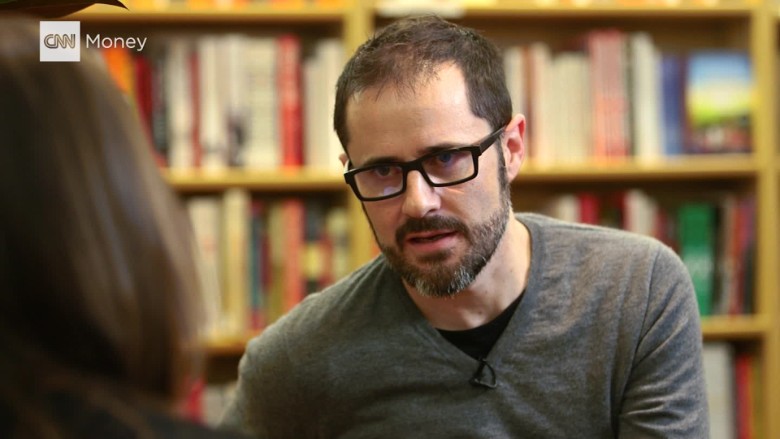
Medium, the digital publishing start-up run by Twitter co-founder Ev Williams, announced Wednesday that it is laying off one-third of its staff.
In a blog post on the site, Williams said the company is also changing its business model "to more directly drive the mission we set out on originally."
"Obviously, this is a tough thing to do, made tougher by the immense respect and love we have for these people who have helped make Medium what it is today," Williams wrote. "We reached this decision when Medium's management team came together to review the last year and take a hard look at our business — where we are and where we're headed."
Williams said Medium will eliminate 50 jobs, "mostly in sales, support, and other business functions."
In 2010, Williams stepped down as CEO of Twitter. He created Medium two years later as a platform for digital publishers. The move was a callback of sorts for Williams, who helped create a proto-blogging platform, Blogger, nearly 20 years ago.
Medium managed to attract a number of notable publishers, including Bill Simmons' The Ringer and the liberal politics site ThinkProgress, by offering both technical resources and revenue incentives. In a harsh news media economy, one typified by layoffs and cutbacks, Medium seemed to offer a life raft.
Related: Medium lands biggest website yet
The company boasted last year that the beta version of its revenue program, which gave participating sites a cut from sponsored posts at the bottom of articles, had drawn applications from nearly 400 publishers. Another program -- "Medium for Publishers," which began last year -- allowed publications to charge monthly subscription fees for premium content.
In 2016, Williams said Wednesday, Medium "made big investments in teams and technology aimed at attracting and migrating commercial publishers," while building and selling its first advertising products to ensure that publishers were paid.
But while that strategy helped attract interest from online publishers and brands, Williams acknowledged that Medium "didn't yet have the right solution to the big question of driving payment for quality content."
"To continue on this trajectory put us at risk — even if we were successful, business-wise — of becoming an extension of a broken system," he wrote.
As Williams sees it, that problem goes well beyond Medium.
"Upon further reflection, it's clear that the broken system is ad-driven media on the internet. It simply doesn't serve people. In fact, it's not designed to," he wrote. "The vast majority of articles, videos, and other "content" we all consume on a daily basis is paid for — directly or indirectly — by corporations who are funding it in order to advance their goals. And it is measured, amplified, and rewarded based on its ability to do that. Period. As a result, we get...well, what we get. And it's getting worse."


